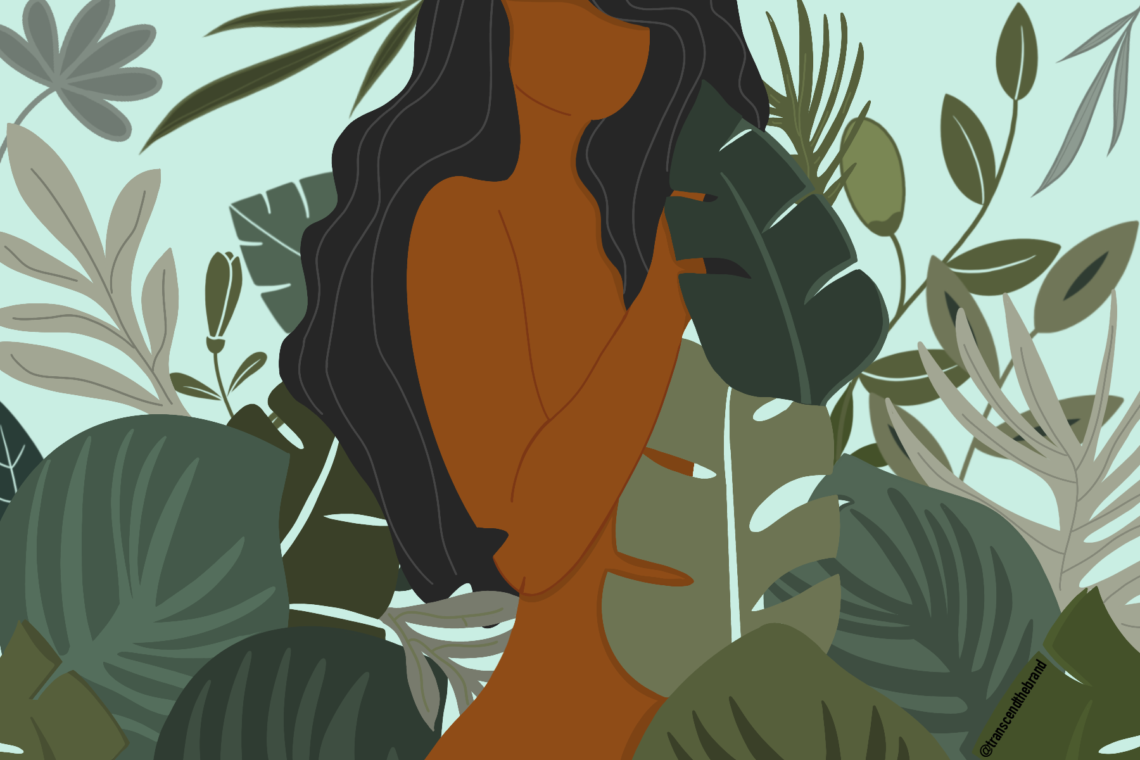Written by: Taqdir Kaur Bhandal (she/her), CEO of Mahwari Research Institute.
Edited by: Janani Ramamurthy (she/her).
I have come to learn through my experience as a sex educator that every person is living with the pelvic health impact of intergenerational trauma as a result of human evolution over the last 150+ years. Much of the trauma is held in our pelvic centers, which can have implications for how we experience sex with ourselves and with partners.
The good news is that there are many free, accessible tools of healing we can revitalize in order to heal the trauma for our own self and/or for the coming generations. In the following paragraphs I share own story as a sex educator, and the story of my ancestral lineage. Through the method of storytelling, I provide an example of how each one of us can make conscious and visible our own complicity in colonialism in Canada. By raising our consciousness on this topic, I believe we can then begin to unlearn these ways of being in our sex education practice, in service of moving towards decolonial futures.
My health and perspective as a sex educator is influenced by my intersectional identity as a woman, female, Punjabi, Sikh, addict, Canadian settler, Canadian citizen, millennial, and upper-middle class member of capitalism. I was born and raised on Coast Salish territory in what is now Burnaby, British Columbia, Canada. My maternal lineage comes from generations of farmers living in small villages of modern day Pakistan. My paternal lineage comes from rural teachers and farmers in small villages of modern day India.
My homelands in South Asia were essentially under British control for over 200 years during which my ancestors were subjected to unspeakable atrocities in the name of colonial exploitation and oppression. [Editor’s Note] Bodily sovereignty and gender norms were similarly controlled by colonial practices. For example, the British sought to demasculinize the “Indian male,” ultimately giving way to hypermasculinized gendered violence in modern India. The British also rigidified the caste system into legal systems which intensified the suffering of the marginalized castes and destroyed matriarchal societies to enforce patriarchal Christian values. Thus, while they publicly touted the loss of “Sati,” or widow burning, and other regressive practices as examples of societal progression, the British simultaneously enforced restrictive societal practices which stripped bodily sovereignty from Indians in the same way that resource depletion stripped wealth from the land.
In 1947, after the resurgence of the Indian Independence Movement, the British Raj fell in South Asia leaving newly formed democratic states (Bose & Jalal, 2017). Known as Partition, borders were drawn in 6 weeks by British officials who had never visited the area, creating India (A Hindu Democracy), Pakistan (A Muslim Democracy), Bangladesh, and Sri Lanka.
My home state of Punjab, where a significant portion of the population identifies as Sikh, was divided into India (about one third) and Pakistan (about two thirds). Parts of it became modern-day Afghanistan and additional bordered regions as well. Millions of families were displaced from their homes and/or killed during these years due to the traumatic colonial process of dividing the region across religious lines. Political polarization fueled by some masculine leaders subject to intergenerational trauma continued to breed in the area after Partition.
During the 1980s – 1990s+, Sikh religious minorities in Punjab began to immigrate to Canada in larger numbers compared to earlier times. In the 1990s, the meetings of Punjabi Indians and Indigenous peoples of Turtle Island reached a critical mass. Though we share the English colonized name ‘Indian’, large- scale immigration from Punjab solidifies my complicity in Canadian settler-colonialism as a Punjabi-Canadian. Through the use of land ownership, voting in the democratic Canadian political system, and participation in industrial work such as logging, my ancestors and myself reproduce forms of settler-colonialism in Canada.
Meanwhile, in Punjab, the 1990s marked the opening of the Indian economy to ‘free’ trade across borders. In The Land of Five Rivers, Punjabi farming families experienced a mass influx of financial capital from companies around the world wanting mangos, rice, and wheat to be harvested from fertile regions of the Earth.
After some years of wealth and exposure to neoliberal capitalism, the reality of land exploitation and its reciprocal impact on health and body sovereignty became clear.
In 2019, accounts of village life passed down through my family in Punjab were filled with stories of intense addictions, higher rates of survival sex work, cutting down trees, and death by depression (note: with the Farmer’s Protest in 2020, there are significant changes, revitalization of ancestral medicines, and a surge in energy emerging in Punjab).
A very similar narrative emerged in my own mind after moving back to Metro Vancouver, Canada, in order to support a family member through them hitting the rock-bottom of an alcohol addiction. While navigating the struggles of intervention, harm reduction, and recovery for family and my own self, I volunteered for many years at a women’s health non-profit organization, which I also identify as a settler-colonial institution. The organization is located in a village of Musqueam, Squamish, and Tsleil-Waututh, now called the Downtown Eastside. It is a village home to many urban Coast Salish women-led actions, and opened up my worldsense to the ways in which settler-colonialism operates in Canada, particular in relation to sex and the valuation of all women’s bodies.
From universities to community organizations, I often witness how modern biomedicine was almost always unintentionally and intentionally privileged over Indigenous modalities of healing when working with diasporic and Indigenous communities locally and globally. While these attitudes and practices are changing, my experience in the field of sexual health and the experiences of my ancestors provide the foundation for asking questions about decolonization in Canadian sexual health education. Scholars in knowledge areas of critical theory, decolonization, and intersectionality offer the theoretical tools required to engage in sex education practice that can be responsive to health and social inequities in the borders of Canada and beyond.
Through my own writings, contemplation, and sex education, I aim to unravel the threads of my own complicity in settler-colonialism as a human, researcher, and Canadian citizen. I do this work in the hopes of repairing human relationships, finding moments of pleasure in the pain, and caring for the Earth. One significant antidote to settler-colonialism that I have come across is cyclical. For sex education, this can mean tuning into the wisdom of menstrual cycles in order to reduce the constant consumption of capitalism, honour our bodies and the land, practicing active consent with ourselves and partners, and slowing down a settler pace of life in service of sustainability.



